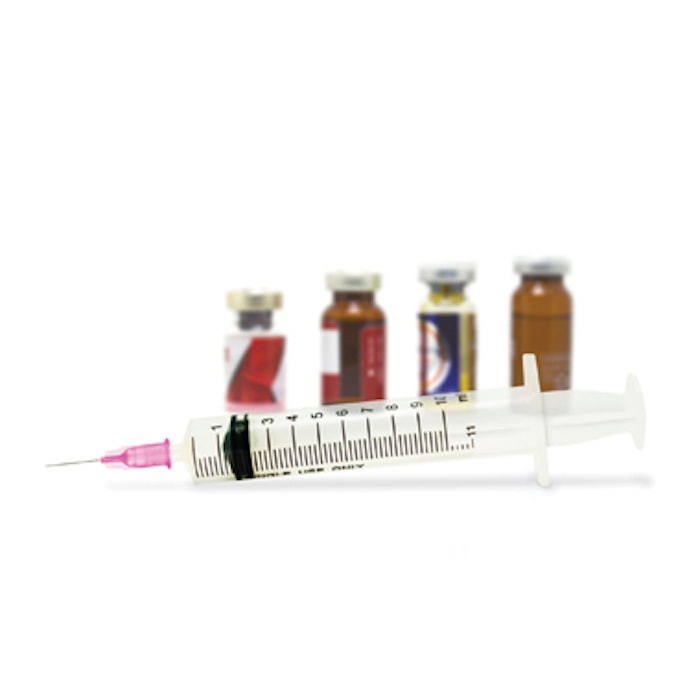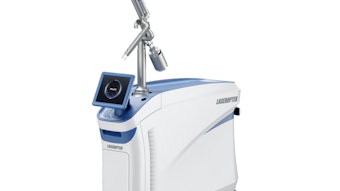
Using pharmaceuticals “off-label”—that is, in ways that are not specified by the United States Food and Drug Administration (FDA)—is technically legal but somewhat controversial in aesthetic medicine. Decisions regarding off-label usage should be based on current standards of care, the best interest of the patient, and your own training and expertise within the medical field. Following are some important points to consider when examining the off-label use of prescription products in your practice.
The Legality of Off-Label Usage
Medical boards—not the FDA—govern the practice of medicine. So once the FDA approves a product, it is up to the physician to determine how to use that particular drug.
“To be very, very clear, the FDA has no ability—zero ability—to have any control over how a physician practices medicine,” says Bradford Adatto, partner for ByrdAdatto, a Dallas-based healthcare and business law firm. “The FDA is not in the business of regulating physicians. If you as a physician want to use a product for an off-label indication, you do not need to seek the FDA’s approval.”
In fact, off-label use has led to many medical breakthroughs. Aspirin was originally approved to treat headaches. After it was introduced, doctors discovered that it also thins the blood and began using it to combat heart congestion. (The FDA has since specified aspirin for use in heart patients.) In the medical aesthetics industry, doctors have learned to use botulinum toxins in innovative ways to solve unique problems presented by patients, often leading to new FDA approvals, such as Botox for forehead lines.
Standard of Care Concerns
While the FDA has no jurisdiction over how a physician practices medicine; medical boards and insurance companies are another story. When examining medical negligence claims involving off-label usage of drugs, medical boards look at the physician’s training, knowledge and licensure, as well as current standards of care. This includes how other physicians use the same products or drugs, what is documented in the medical literature, opinions of colleagues, and ultimately, what is in the best interest of the patient.
Reckless off-label use of a drug or drugs can lead to legal liability issues and medical board sanctions. If the off-label treatment results in serious injury or death, the doctor may be subject to criminal prosecution.
“If a physician provides off-label treatments that no other physician is administering, and no literature supports the use of this drug for that particular treatment, the physician can quickly fall outside the medical standard of care,” says Adatto. “This can cause issues with their malpractice insurance and state medical board. Providers do not want to be in a situation where a medical board believes a treatment is too experimental.”
For example, Dr. Conrad Murray, the personal physician for music legend Michael Jackson was found to have improperly administered propofol—a drug specified for use as an anesthetic—to the “King of Pop” in order to help him sleep. Dr. Murray was found to be complicit in Jackson's death, was convicted of involuntary manslaughter and sentenced to four years in prison. (He served two.)
“Propofol is a drug associated with anesthesia and generally used only for surgery. But Michael Jackson’s physician was using it to sedate him,” says Adatto. “This goes to the question of standard of care. If other physicians are not using the drug for that off-label indication and the literature does not support that use, the physician is subjecting himself to malpractice claims, loss of license, and in this case, jail time.”
To protect your practice, your patients and your medical license, consider whether you would be able to explain to your medical board why this off-label treatment is in the best interest of the patient, and the evidence you have to support that claim. Also, update your malpractice insurance provider on all new treatments offered within your practice.
Informed Consent
Misleading patients as to the specified use of the drugs you administer is another way for doctors to run afoul of their medical boards. Doctors who administer off-label treatments must be forthcoming with patients and obtain consent before providing these treatments.
“If a provider tells a patient that a drug has been approved for a particular condition, and the FDA has not approved it for that condition, the state medical board may consider that the doctor is providing false or misleading information,” Adatto says. “When you use a drug off-label to treat a patient, make sure you provide the proper risk disclosures and obtain the applicable consents in writing.”
Practices should have a separate informed consent form specifically for off-label treatments that describes the potential risks and states that the product is being used in a way that has not been approved by the FDA.
“Document that the patient received this information both orally and in writing,” Adatto says. “That’s going to help protect the physician because it shows that they did tell this particular patient that they were using this drug for an off-label use, and the patient understood that and assumed some of those risks.”
Medspa Considerations
In medspas, off-label use can be a particularly thorny issue, since non-physicians sometimes administer these treatments. That is why everyone in a medical aesthetic facility must realize that off-label use is an entirely medical decision. A nurse, for example, must be following a doctor’s order and, if the doctor decides that a drug can be used in a manner that is not specified on its label, that decision needs to be established and documented following proper delegation protocols.
If a doctor is using good judgment backed by research and is forthcoming with patients about how and why they want to use a drug in a manner not directly approved by the FDA, off-label use should present no problem. However, obtaining proper patient consent is vitally important.
In most cases, doctors who provide off-label treatments are attempting to go the extra mile for their patients. Giving them the leeway to do so has led to numerous important medical breakthroughs and changed countless lives for the better. As long as you take proper precautions and base your medical decisions on sound science, you have little to fear from off-label usage.
Alex R. Thiersch, JD, is a Chicago-based healthcare attorney and partner with ByrdAdatto Law Firm. He is also founder and director of the American Med Spa Association (AmSpa), which serves medspas and medical aesthetic physicians. Contact him at [email protected].
Image copyright Getty Images











